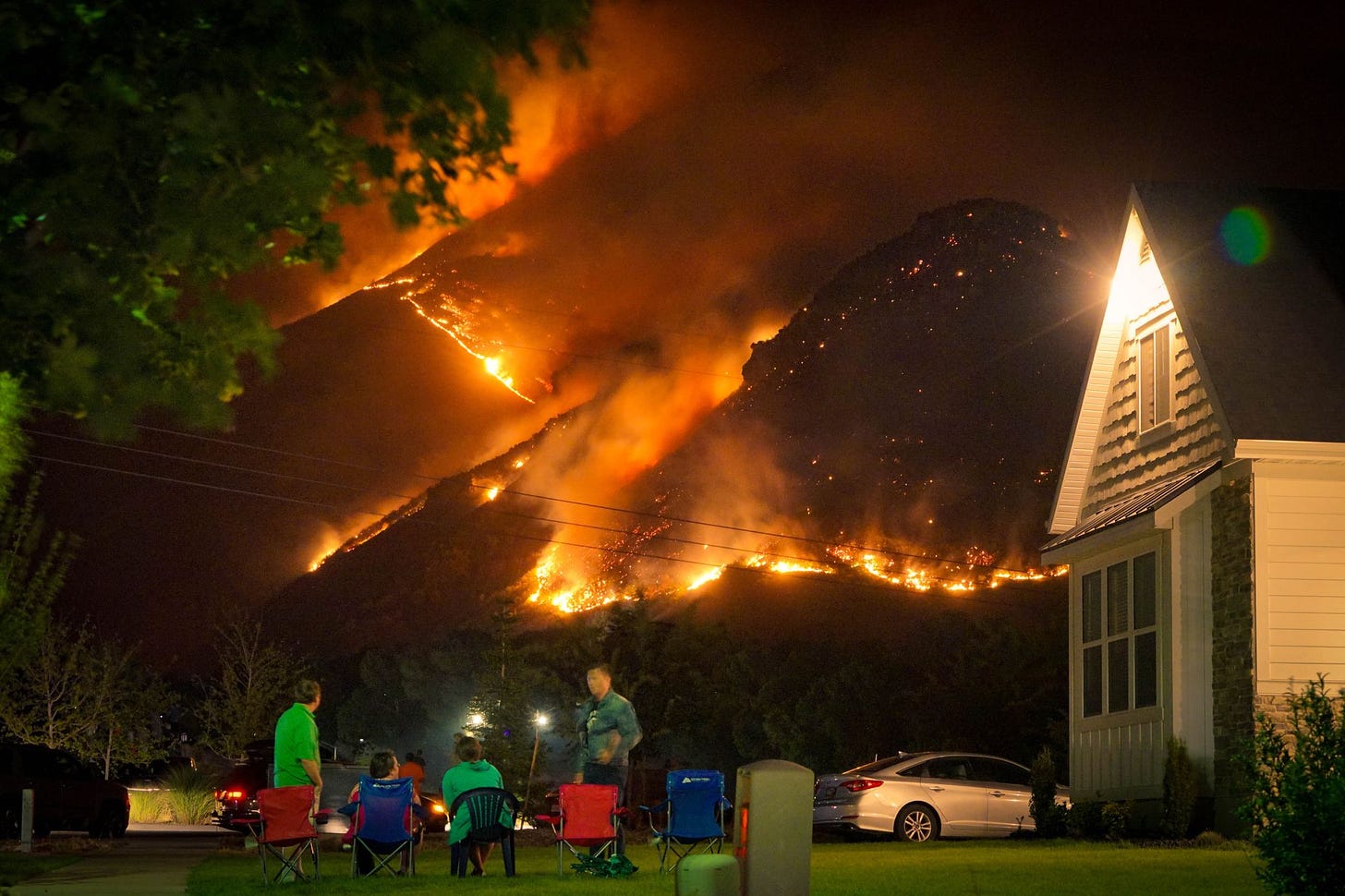We think everyone panics during a crisis.
Actually, they do the opposite.
Read this:
For a while I became obsessed by a video recorded on the day of the 2004 Southeast Asian tsunami. It shows an older white guy, probably a tourist, standing on the beach in Thailand watching as the water recedes and the tsunami comes into view. As people run, as the wave grows, he just stands there. People start shouting at him, desperately pointing to the wave, trying to warn him. The wave grows, rushing closer and closer. Even now when I watch this video I still think he’s going to move. Of course he never moves. He doesn’t move an inch. The wave comes ashore and swallows him.
—Nate Bear, “Staring at The Tsunami”
This disturbing image symbolizes our culture over the last several years, maybe centuries. So many of our friends and family act like that man on the beach. This behavior permeates our politics and news media.
Why?
Like Nate, I’ve grown a deep, somewhat morbid curiosity into the reasons why a majority of seemingly intelligent human beings would stand and stare at an oncoming disaster while doing nothing about it. I’ve spent years researching it, and even though I’ve collected my findings so far into a book, I’ll never be done chronicling the history of human folly because it’s an ongoing story. We face so many global, existential threats now. And yet, their proliferation only seems to inspire more of the same denial and wishful thinking. As climate scientists finally admit our targets are “deader than a doornail” and brunch liberals start to notice the oncoming H5N1 pandemic, we transition to an administration even more incompetent than the outgoing one. Almost everyone we know seems happy to stand and watch.
How did we get here?
All of my research leads back to the same observation. Despite the casual tone of the answer, I promise you a sober discussion:
It’s not cool to overreact.





